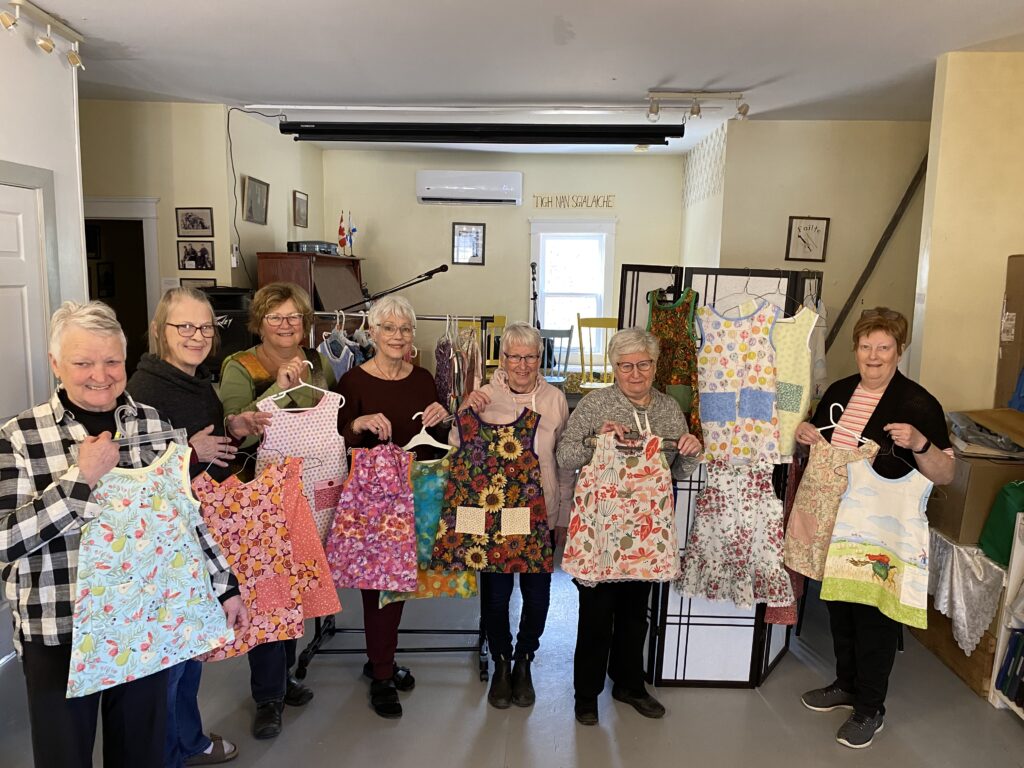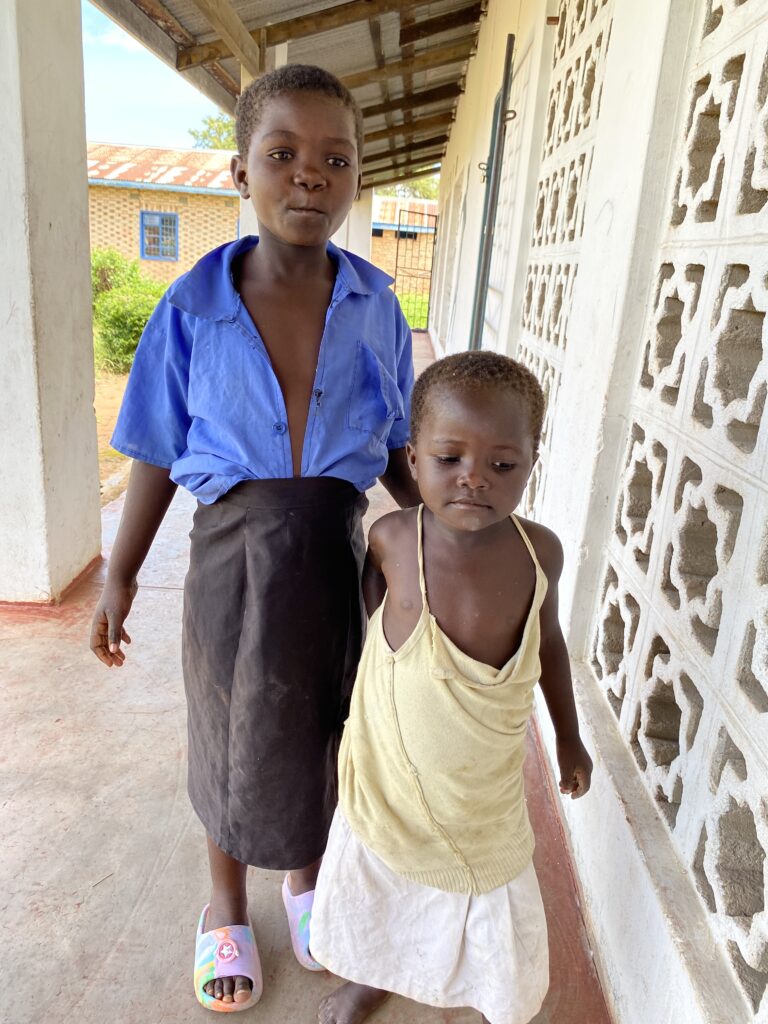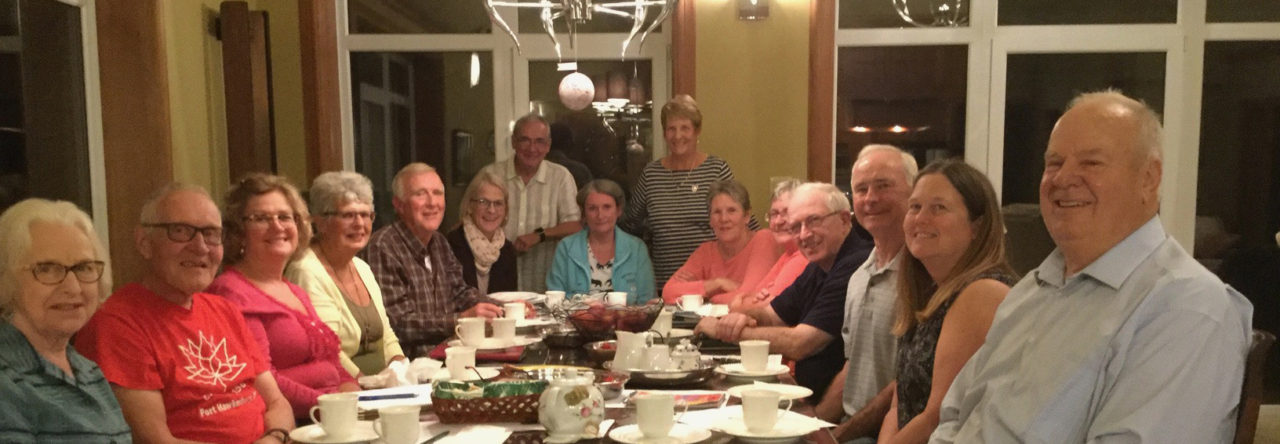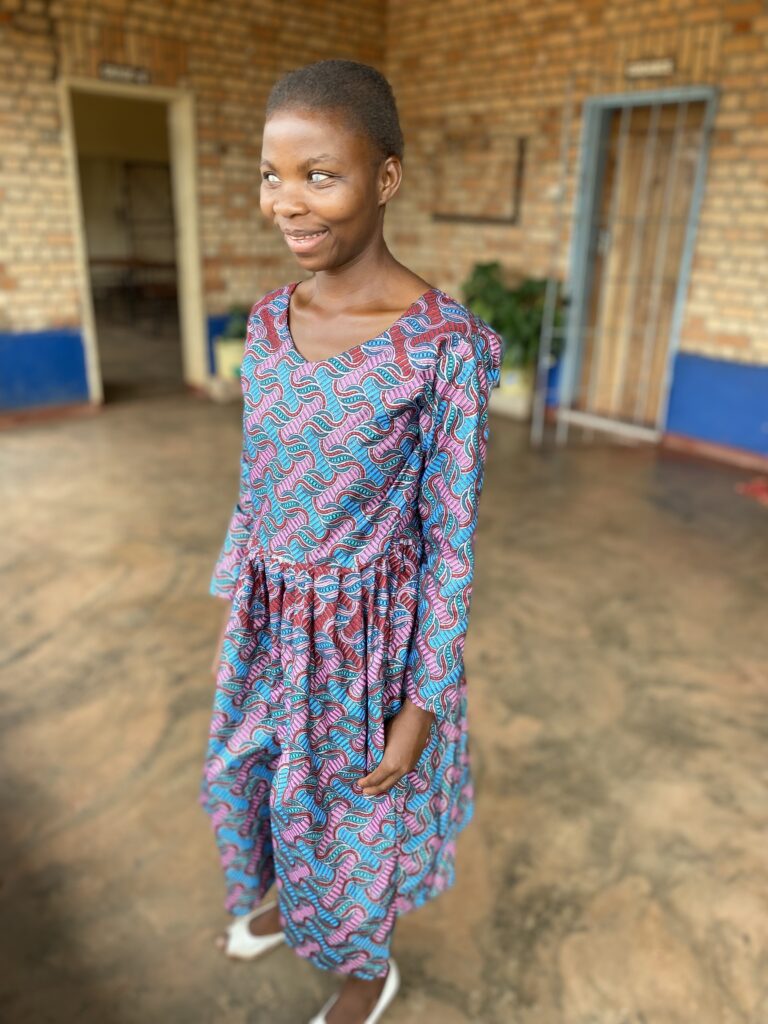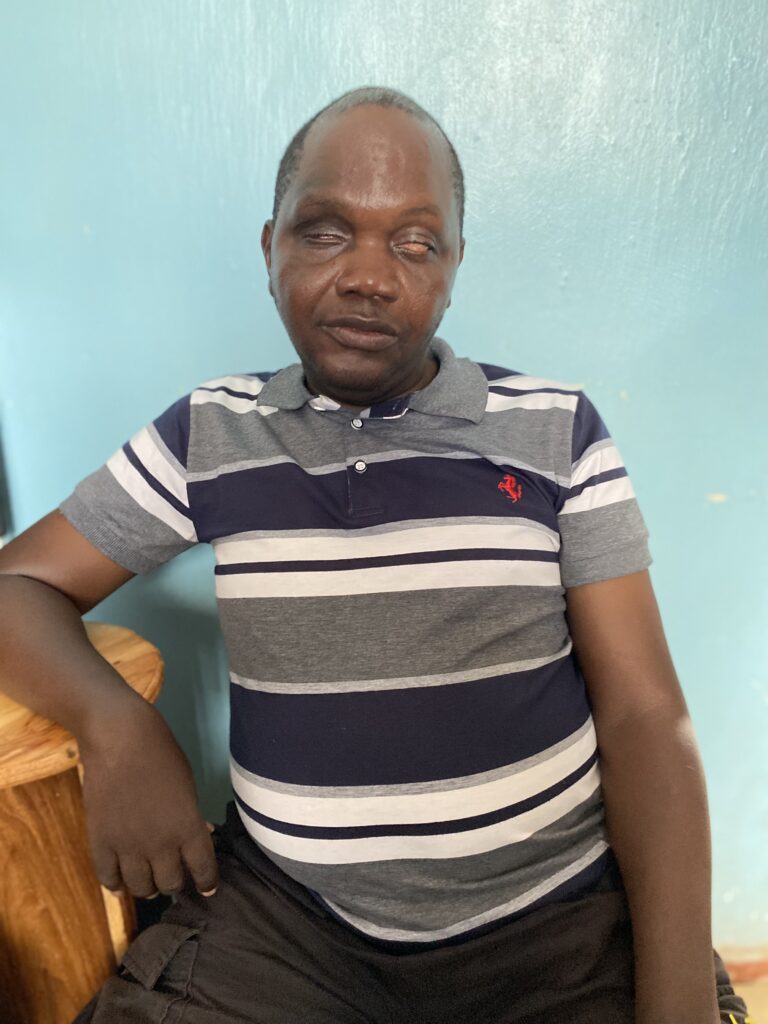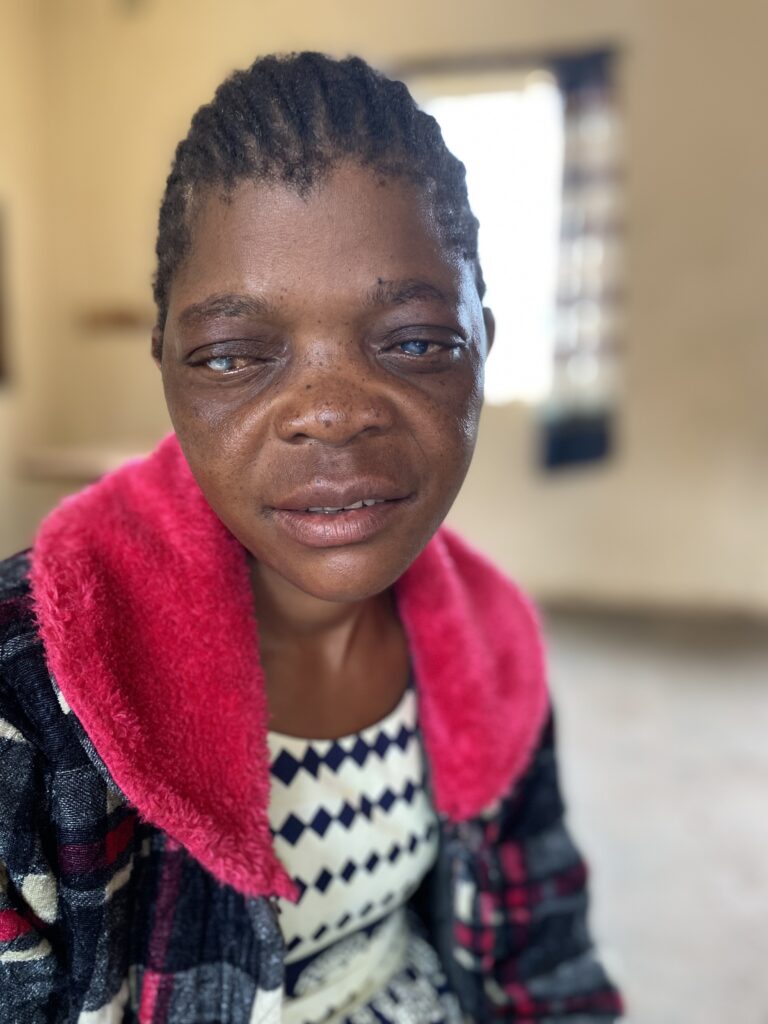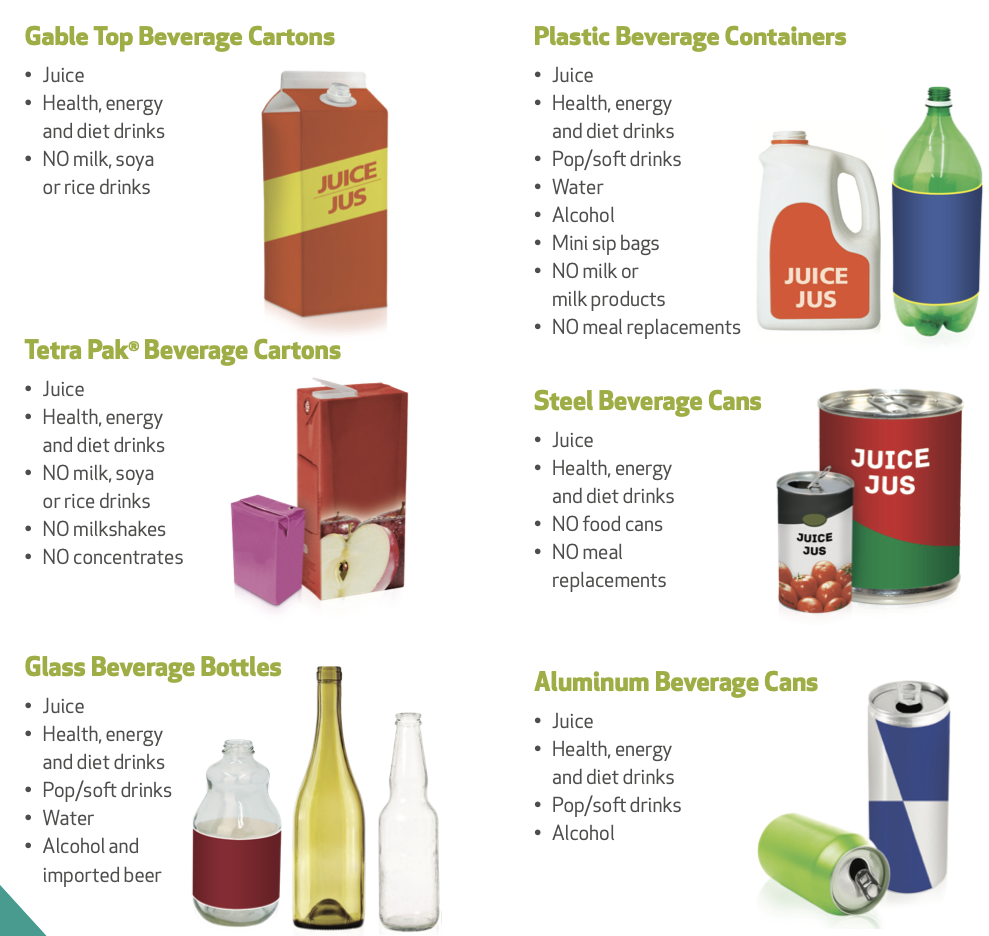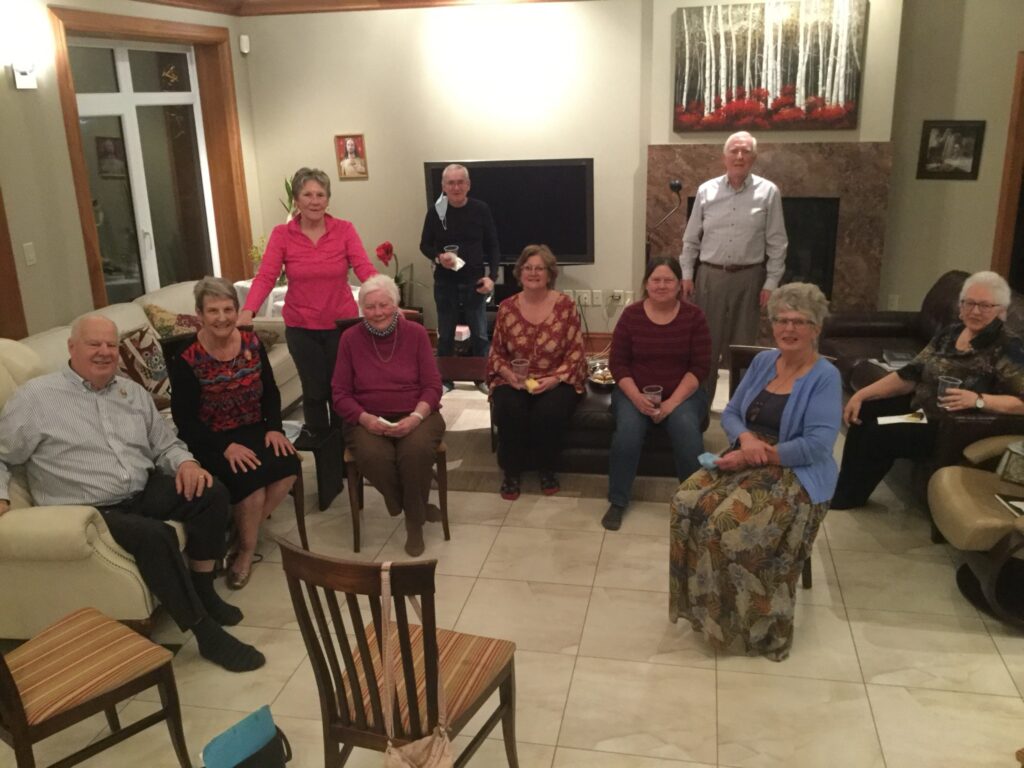Five years ago, the Kawambwa schools in Kawambwa and Mporokoso were meeting the very basic needs of their visually impaired and blind students…just barely. Food was the most important need with shelter and education next.
Each student had a school uniform which they changed out of as soon as school was over. The play clothes were, what was available, without a focus on style, fit or sun protection.
Just like any child they delight in cute clothes which make them feel pretty and accepted.
Five years later there have been major improvements in infrastructure, transportation and the availability of water but a practical, pretty dress of their own, still is a dream for most girls.
Dress a Girl Around the World is a Campaign under Hope 4 Women International bringing dignity to women around the world since 2006. Hope 4 Women International is a nondenominational independent Christian organization dreaming of a world in which every girl has at least one new dress. They want girls to know that they are worthy of respect, and that they are loved by God. “Dress a Girl Around the World” consists of volunteer sewing groups with the intention of making dresses for girls around the world. Since its birth in October of 2009 more than two million dresses have been distributed to 90 countries.
The members of the Judique Crafters Group meet every Monday during the fall and winter in the Story Teller’s Gallery. Anyone can drop in, core members are Jean MacDonald, Deb Graham, Judy Sandham, Charlotte Rankin, Marion Graham, Dena Mackinnon, Cathy Cotton, Sheila MacDonell, Florence Beaton, Marian MacLellan and Donelda Mac Donell who donated dresses when she heard of the project.
The building they gather in was originally an old store built as a company house on the Company Road in Port Hood and taken in sections to Judique and rebuilt as a store (Jack MacDougall’s) and was repurposed into a museum. Debbie Graham brought forward the idea of making the Story Teller’s Gallery available for those who wanted to meet for a craft afternoon. To promote the idea, they searched for a short-term project where community members could work together in a comfortable social atmosphere.
On a fabric shopping trip to Atlantic Fabrics in New Glasgow, Jean MacDonald spotted a notice promoting Dress a Girl Around the World. The ladies enthusiastically welcomed this as the project they were searching for. Patterns are available on the website and club members made four or five dresses each. The dresses are made from beautiful serviceable material, sewn securely with flat (French) seams and pockets. The patterns are just what any little girl would be delighted to wear. As an added touch the club has added pretty panties which go with each dress.
Now that they had about 30 gorgeous dresses that would delight a little girl somewhere, but where? Inspired by the work of Inverness County Cares (ICC) the crafters approached ICC members to inquire if they could send their dresses to the Kawambwa schools in Northern Zambia. ICC enthusiastically agreed that the Zambian children would be overjoyed to receive such wonderful gifts. Shipping is always a problem, expensive postage and unreliable postal services cause doubt that the dresses would arrive at the intended destination. It was decided that the dresses will go to Zambia on the next ICC members trip in perhaps 2026. When the sisters were asked if they would like to receive the dresses, they all expressed happiness for the dresses and gratitude that they were chosen.
Judique Crafter members expressed the satisfaction they feel brightening up the lives of these dear little girls. They compare them to their own granddaughters and think, how fortunate we are to live in Canada. It was also voiced how members enjoy getting together for some tea and biscuits and in the process growing closer to their work mates and learning a skill in the process.
Inverness County Cares (ICC) is a local charitable organization, founded in 2012 and based in Inverness County, NS, Canada. ICC works in partnership with Chalice.ca, a Canadian charity, based in Bedford, Nova Scotia. Chalice provides guidance and assistance to help ICC provide a better life for the children at the Kawambwa schools. The Kawambwa Project involves supporting two schools for albino and visually impaired students, in Northern Zambia. Inverness County Cares always welcomes new members. Individuals who wish to donate, can use the donate button on our website http://invernesscountycares.com When using E-transfer, please include your mailing address for CRA tax receipts and a thank you message. E-transfer address: [email protected] or send a cheque to Inverness County Cares, 5414 Route 19, Judique, NS, Canada, B0E1P0. Taxation receipts provided
